산업 일반
[영문과 함께 읽는 HOT ISSUE] 크렘린의 새로운 당근 전술이 먹힐까
- [영문과 함께 읽는 HOT ISSUE] 크렘린의 새로운 당근 전술이 먹힐까
러시아 국민이 옛날을 그리워하는 마음은 이해할 만하다. 세계제국을 호령하던 시절이 그리 먼 옛날이 아니었다. 그러나 지난 15년 동안 지정학적 영향력을 상당히 잃었다. 그러니 새로 부강해진 러시아가, 옛 소련의 뒷마당이 아닌 곳에서까지, 과거의 힘을 되찾을 꿈에 젖는다고 해서 놀랄 일도 아니다. 유럽안보센터(모스크바) 소장 타치아나 파칼리나는 정부의 현 자세를 두고 “러시아는 세계를 향해 ‘우리는 여전히 강대국’이라는 메시지를 보내고자 한다”고 말했다. 러시아와 이웃한 많은 나라가 이미 다시 고개를 쳐드는 러시아 정부의 압력에 부대낀다. 러시아는 그루지야와 첩자 문제로 마찰을 빚은 뒤 지난해 모든 철도와 항공 노선을 폐쇄하고 그루지야 상품의 수입을 막았다. 탈린에 있는 소련 전쟁기념관 철거 문제로 가벼운 언쟁이 있은 뒤 모스크바 주재 에스토니아 대사관은 러시아 정부를 지지하는 괴청년들의 기습을 받았다. 우크라이나와 벨로루시가 러시아산 가스·석유의 가격인상을 거부하자 러시아는 아예 공급을 끊었다. 러시아 마음대로 하려는 그 같은 조치들이 역풍을 불렀다. 그루지야와 우크라이나 양국 국민은 최근 대선에서 반러시아파 지도자를 다시 뽑았다. 한때 러시아와 가장 가까운 동맹이었던 벨로루시마저 러시아 정부의 압력을 받고 유럽에 추파를 던지는 작전으로 대응했다. 이제는 러시아 정부가 교훈을 얻은 듯하다. 블라디미르 푸틴 대통령이 요즘 실력을 행사하는 모습은 전보다 유연해졌다. 충성의 대가로 가스를 공급하고 국제외교적으로 지원한다는 새 전술이 좀 더 효율적임이 드러났다. 예컨대 그는 지난주 소피아에 가서 불가리아를 관통해 나중에는 발칸반도와 이탈리아로 이어지는 새로운 가스 공급관의 신설 협정을 마무리했다. 불가리아로선 안정적인 에너지 공급을 확보하지만 러시아 공급관에 의존하는 신세가 된다. 세르비아도 얼른 협정에 서명했다. 코소보 문제로 러시아 정부의 후원이 필요하기 때문이다. 현재 세르비아의 자치공화국인 코소보가 몇 주 뒤 독립을 선언하면 이 문제를 두고 러시아와 서구의 새로운 대결이 예상된다. 미국과 독일 정부는 코소보의 독립을 지원하겠다고 약속했으나 푸틴은 세르비아 정부의 승인이 선결이라는 입장이다. 그러나 세르비아의 현 대통령은 절대 허용하지 않겠다고 다짐한 바 있다. 러시아 정부가 그런 입장을 취하는 이면에는 암묵적 위협이 있다. 만일 서구세계가 강경하게 버틸 경우 러시아는 소련에서 독립한 뒤 친서구적 성향을 보이는 몇몇 국가의 독립운동세력을 더욱 강하게 지원하는 방식으로 보복할지 모른다. 세르게이 라브로프 러시아 외무장관은 지난주 그루지야의 자치구인 압하지아와 남오세티아의 독립을 인정할 계획이 없다고 부인했다. 그럼에도 두 지역은 사실상 러시아의 보호령으로 러시아 군대가 치안을 맡는다. 몰도바와 우크라이나의 국경에 있는 트란스드니스터도 마찬가지다. “압하지아와 남오세티아는 그루지야의 목을 겨눈 칼과 같다”고 그루지야에서 국회의장을 지낸 바크탕 길로바니가 말했다. 러시아 정부는 자치주들의 독립에 반대한다고 말하지만 과거 역사를 보면 분리독립 위협을 기꺼이 전략적 도구로 이용해 왔다. 설령 코소보 사태에서 승리를 거둔다고 해도 러시아 정부는 푸틴의 표현대로 미국이 지배하는 “단극 세계”에 계속 도전할 가능성이 높다. 미국의 코소보 독립 지원은 “미국은 자국의 이익에 따라 주권을 주거나 빼앗아도 된다고 생각한다”는 증거라고 러시아 상원 외교위원회의 부위원장 바실리 리하초프가 말했다. 러시아 정치 지도자들이 가진 그런 불만이 더욱 야심적인 실력 행사로 이어질지 모른다. 영국 워위크 대학의 로버트 스키델스키 교수는 “재흥하는 러시아는 세계 제일의 수정주의 세력”이라고 말했다. 러시아 정부는 서구와의 균형을 맞출 생각으로 “핵무기와 에너지라는 양대 자산”을 이용해 베네수엘라, 이란, 시리아 등 점증하는 반미국가 연합과 이미 우호관계를 확립했다. 다음 착수는? 스키델스키에 따르면 카자흐스탄, 벨로루시, 우크라이나에 사는 꽤 많은 러시아인의 소요를 부추겨 그 나라들을 도로 러시아의 영향권으로 편입시키는 일일 가능성이 있다. 또 하나의 가능성은 중앙아시아 독재국가들에 러시아와 중국을 합친 느슨한 동맹인 상하이협력기구를 강력한 연합으로 다지는 일이다. 푸틴의 후계자로 지명돼 5주 뒤 대선 후보로 나설 드미트리 메드베데프는 지금까지 외교문제에 관해 입을 열지 않았다. 그러나 러시아는 “강력해야 하며 나머지 세계와 통합돼야 한다”는 말을 했다. 물론 그 통합이 어떤 형태일지는 아직 결정되지 않았다. 불만에 찬 옛 강대국이 규칙을 다시 만들자고 고집하면 크게 요동칠 소지가 있다.
With ANNA NEMTSOVA in Moscow
The Kremlin Wises Up Russians can be forgiven for a little nostalgia. Not long ago, their country commanded a worldwide empire. Yet in the past 15 years, their homeland has lost much of its geopolitical clout. No surprise, then, that the newly rich Russia should hanker to restore its muscle, and not just in its old Soviet backyard. As Tatyana Parkhalina, director of the Moscow-based Center for European Security, describes the government's current attitude, "Russia wants to send the world a message: 'We are a superpower - we are still here!" Many of Russia's neighbors have already borne the brunt of Moscow's efforts to reassert itself. Last year, after a spy row with Georgia, Russia cut off all rail and air links and embargoed Georgian products. Estonia's embassy in Moscow was raided by Kremlin-backed thugs after a spat over the removal of a Soviet war memorial in Tallinn. And both Ukraine and Belarus found their oil and gas supplies suspended when they refused Russian price hikes. But all these attempts to enforce Russia's will backfired: both Georgians and Ukrainians recently re-elected their anti-Kremlin leaders. Even Belarus, once Russia's closest ally, responded to Moscow's squeeze by making overtures to Europe. Now, it seems, the Kremlin has learned its lesson. Vladimir Putin's latest power plays demonstrate greater subtlety, and his new tactics - trading gas supplies and international diplomatic backing for loyalty - are proving more effective. Last week, for example, he traveled to Sofia to clinch a deal that will see a major new gas pipeline built through Bulgaria and ultimately on to the Balkans and Italy. Bulgaria will get stable energy supplies - but will become dependent on a Russian pipeline. Serbia quickly signed up too, in no small part because Belgrade needs Moscow's backing on Kosovo. Indeed, Kosovo is set to become the latest showdown between Russia and the West when the breakaway Serbian republic declares its independence in the next few weeks. Washington and Berlin have promised to support it, but Putin has insisted Belgrade must approve the deal - something Serbia's current president has vowed never to do. Behind Moscow's position is an implicit threat: should the West hold firm, Russia could return the favor by ratcheting up separatist pressure in several pro-Western former Soviet states. Russia's foreign minister, Sergei Lavrov, denied last week that Moscow has any plans to recognize the breakaway Georgian provinces of Abkhazia and South Ossetia. Yet both areas are already effectively Russian protectorates, policed by Russian troops. So is Transdniestr, on the border of Moldova and Ukraine. "Abkhazia and Ossetia are like knives held to the throat of Georgia," says former Georgian parliamentarian Vakhtang Gilovani. While Moscow says it opposes the recognition of breakaway nations, it has been more than ready to use the threat of separatism as a strategic tool in the past. Even if Moscow wins the showdown over Kosovo, it is likely to continue challenging what Putin has called the U.S.-dominated "unipolar world." U.S. backing for Kosovo's independence is proof that "Americans feel they can give or take away sovereignty depending on their own interests," says Vasily Likhachev, vice chairman of the International Affairs Committee of the upper house of Russia's Parliament. Such rancor among Kremlin leaders could lead to even more ambitious power plays. Today's "resurgent Russia is the world's foremost revisionist power," argues Prof. Robert Skidelsky of the U.K.'s University of Warwick. To balance the West, Moscow, using its "two superpower assets, nuclear weapons and energy," has already established friendly relations with a growing coalition of disgruntled states like Venezuela, Iran and Syria. What's next on the agenda? One option, according to Skidelsky, would be to foment unrest among the sizable Russian populations in Kazakhstan, Belarus and Ukraine to help bring these states back into Moscow's orbit. Another would be to build the Shanghai Cooperation Agreement, a loose alliance of Central Asian dictatorships plus Russia and China, into a powerful union. Putin's anointed successor, Dmitry Medvedev, due to take over in five weeks' time, has so far remained quiet on questions of foreign policy. But he has said that Russia should be "strong and integrated with the rest of the world." Of course, what form that integration takes remains to be determined, and could shift dramatically if the disgruntled former superpower insists on rewriting the rules.ⓒ이코노미스트(https://economist.co.kr) '내일을 위한 경제뉴스 이코노미스트' 무단 전재 및 재배포 금지





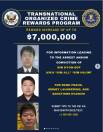



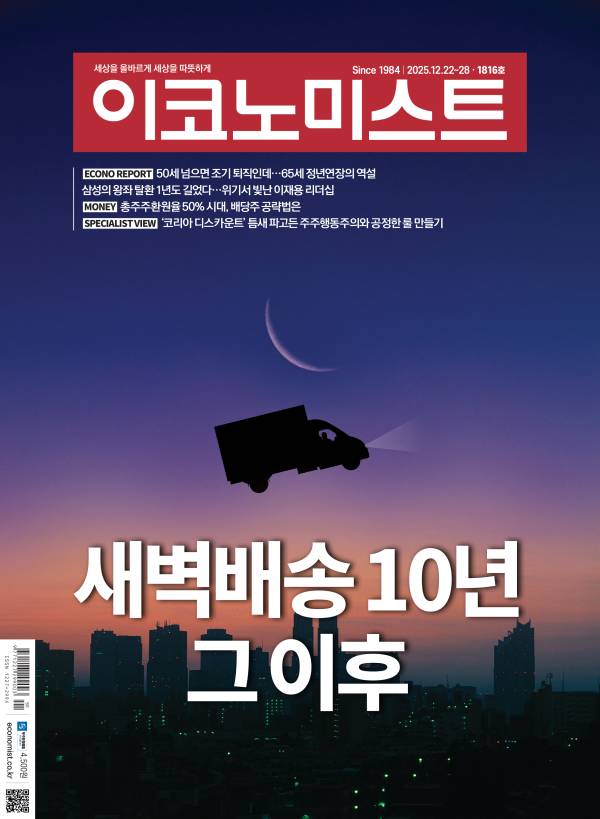
![면봉 개수 → 오겜2 참가자 세기.. 최도전, 정직해서 재밌다 [김지혜의 ★튜브]](https://image.isplus.com/data/isp/image/2025/12/21/isp20251221000019.400.0.jpg)
![갓 잡은 갈치를 입속에... 현대판 ‘나는 자연인이다’ 준아 [김지혜의 ★튜브]](https://image.isplus.com/data/isp/image/2025/11/21/isp20251121000010.400.0.jpg)
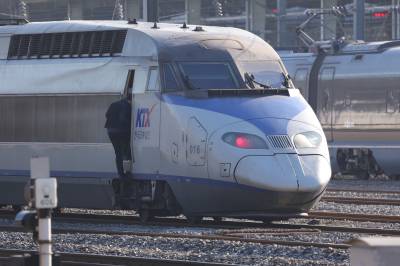
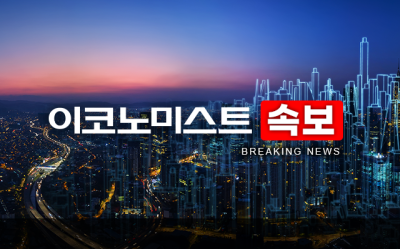
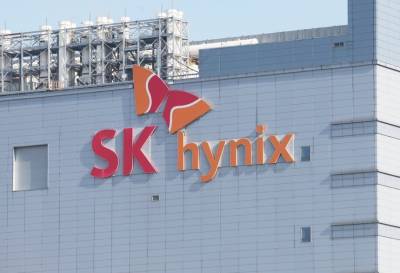
당신이 좋아할 만한 기사
브랜드 미디어
브랜드 미디어
내년 정비사업 ‘80조 수주전’…압구정·여의도·목동·성수 ‘격돌’
세상을 올바르게,세상을 따뜻하게이데일리
이데일리
이데일리
‘주사이모 논란’ 입짧은햇님 구독자 이탈 계속
대한민국 스포츠·연예의 살아있는 역사 일간스포츠일간스포츠
일간스포츠
일간스포츠
‘봉황기’ 다시 청와대로…李, 용산 대통령실 시대 마침표
세상을 올바르게,세상을 따뜻하게이데일리
이데일리
이데일리
홈플러스, 익스프레스 분리매각…최대 채권자 메리츠로 쏠리는 눈
성공 투자의 동반자마켓인
마켓인
마켓인
AI신약개발 국내 최초 빅파마와 계약 체결한 갤럭스…베링거가 선택한 이유
바이오 성공 투자, 1%를 위한 길라잡이팜이데일리
팜이데일리
팜이데일리